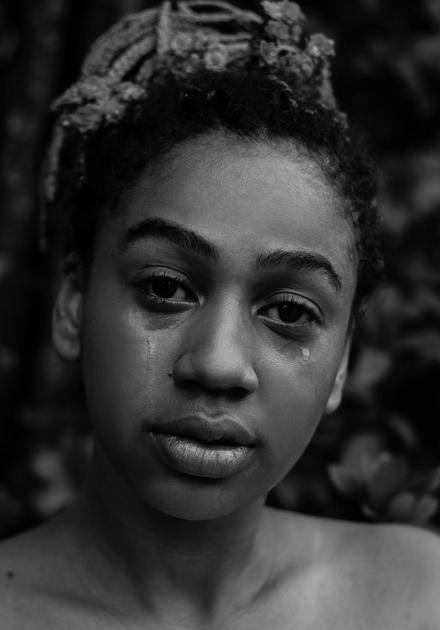Have you ever looked in the mirror and noticed those strands of hair that seem to vanish daily? Hair loss can often feel like an emotional burden, especially for women over 30. Coupled with a hormonal imbalance, this struggle is not just about vanity; it affects your confidence and well-being. Understanding the relationship between these two issues can empower you to take action.
Many women experience fatigue, mood swings, and countless other symptoms, all linked back to hormonal changes that often go unnoticed. You are not alone in this battle, and many are seeking solutions to restore their vitality.
Join Thousands of Women Rediscovering Their Energy
This gentle method gave me back the vitality I thought was gone forever
Understanding Hair Loss in Women Over 30
Hair loss in women over 30 is a reality that many face, yet it remains a topic often shrouded in silence. This age marks a period of significant life changes, both physically and emotionally. With the transition into your 30s, hormonal shifts can initiate a series of changes in your body, one of which may include hair thinning or loss.
For numerous women, this experience can feel isolating, as societal standards often place heavy emphasis on lush, full hair as a sign of youth and beauty. However, understanding that changes in hair health are common can help alleviate some of the stigma and anxiety associated with hair loss.
The Link Between Hormones and Hair Health
Hormones play a vital role in your overall health, influencing everything from your mood to your skin. As women age, especially after 30, fluctuations in hormones such as estrogen and progesterone can lead to hair loss. Conditions such as polycystic ovary syndrome (PCOS) and thyroid imbalances further complicate the situation.
These hormonal changes can cause hair follicles to shrink, leading to weaker strands that are more likely to fall out. Understanding this link empowers women to seek help and treatment. It’s crucial to recognize that hormonal balance is not just about hair; it affects your overall well-being.
Common Symptoms of Hormonal Imbalance
Recognizing symptoms of hormonal imbalance can be a game-changer in addressing hair loss:
- Hair Thinning: Noticeable thinning, often called female pattern hair loss.
- Changes in Menstrual Cycle: Irregular periods or changes in flow.
- Fatigue: Unexplained tiredness that lingers.
- Mood Swings: Increased anxiety or irritability.
- Skin Changes: Oily skin or acne flare-ups.
If you identify with these symptoms, it’s essential to listen to your body. Consulting with a healthcare professional can provide insight into whether hormonal imbalances are at play.
Natural Remedies for Hair Loss
While medical treatments are an option, many women prefer natural remedies that support hair growth and hormonal balance. Consider these:
- Essential Oils: Oils like rosemary and lavender may stimulate hair growth.
- Scalp Massage: Enhances circulation and encourages hair follicles.
- Aloe Vera: Known for its soothing properties, it can strengthen hair.
- Herbal Supplements: Herbs like saw palmetto may help address hormonal issues.
Exploring natural alternatives can be empowering, allowing you to embrace your health journey holistically.
Recognizing the Signs of Hormonal Fluctuations
Learning to recognize when your hormones are fluctuating can help you take proactive steps. Look for patterns in your body’s signals. Do your energy levels drop suddenly? Are there phases in your menstrual cycle that feel more challenging? Keeping a journal can help you track these changes over time.
It’s also beneficial to communicate with other women who may share similar experiences. Building a support system can provide encouragement and insight.
Coping Strategies for Emotional Well-being
The emotional impact of hair loss can be profound. Many women experience low self-esteem or anxiety due to their changing appearance. Here are some coping strategies to enhance emotional well-being:
- Stay Connected: Reach out to friends or support groups who understand.
- Practice Self-Care: Engage in activities that make you feel good about yourself.
- Mindfulness and Meditation: These practices can help reduce stress and improve your outlook.
- Seek Professional Help: Therapy can be beneficial if feelings of sadness persist.
Taking care of your emotional health is just as important as addressing physical symptoms. Remember, you are not alone in this journey.
Lifestyle Changes That Support Hair Growth
Incorporating specific lifestyle changes can dramatically impact hair health:
- Regular Exercise: Improves circulation and promotes overall health.
- Stress Management: Techniques such as yoga can reduce stress, which often exacerbates hair loss.
- Adequate Sleep: Aim for 7-9 hours nightly to allow your body to heal.
These changes might seem small, but they can forge a powerful impact on your hormonal balance and hair health.
The Role of Nutrition in Hormonal Balance
Your diet plays a critical role in maintaining hormonal balance. Some beneficial nutrients include:
- Omega-3 Fatty Acids: Found in fish and flaxseeds, these acids promote a healthy scalp.
- Vitamins and Minerals: B vitamins, zinc, and iron are essential for healthy hair production.
- Adequate Protein: Hair is made up of protein, so ensure you consume enough.
Consider keeping a food diary to identify what fuels you positively. Also, try to include foods that support your hormonal health daily.
Addressing Self-esteem and Confidence Issues
Dealing with hair loss can take a toll on self-esteem. It’s essential to focus on the positives in your life:
- Embrace What You Have: Celebrate your unique beauty; hair is just one aspect.
- Engage in Creative Expression: Consider new hairstyles or colors to mix things up.
- Practice Affirmations: Daily affirmations can boost your confidence and self-image.
Taking small steps in addressing self-esteem can lead to significant improvements in your emotional health.
Finding the Right Support and Community
Building a supportive community is vital in navigating hormonal imbalances and hair loss. Look for groups online or locally that focus on women’s health and well-being. Sharing experiences can foster understanding and healing.
If you’re unsure where to start, many platforms offer forums for women facing similar challenges. Together, you can uplift and motivate one another.
Need more help? See here how many women are solving this without heavy medication.
Believe that it’s entirely possible to improve the symptoms and challenges you face. By taking one step at a time, as so many other women have done, you can carve out a path to recovery and renewed self-confidence.
Join Thousands of Women Rediscovering Their Energy
This gentle method gave me back the vitality I thought was gone forever







